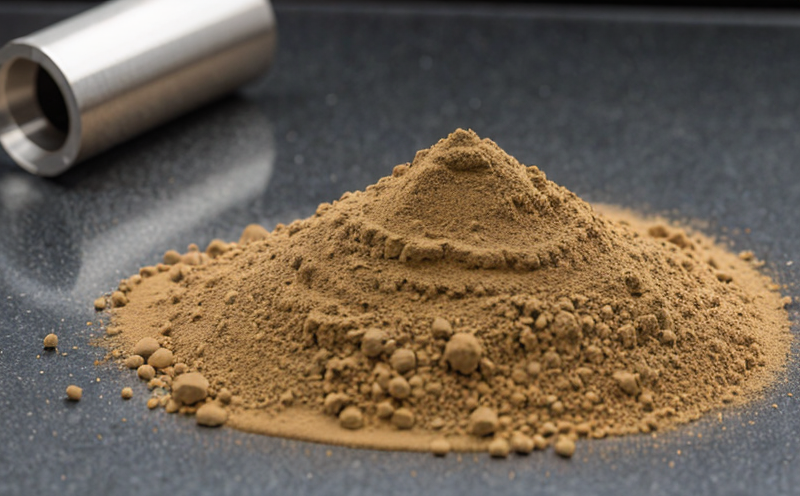ASTM D638 Tensile Testing of Polymers
The ASTM D638 standard test method is one of the most widely recognized and applied standards for tensile testing of plastics. This service ensures the accurate measurement of the tensile strength, elongation at break, yield strength, and modulus of elasticity in a variety of polymer materials used across various sectors including aerospace, automotive, electronics, and consumer goods.
ASTM D638 is particularly relevant for polymers that exhibit linear or near-linear stress-strain behavior. The test involves applying a controlled tensile force to a specimen until it breaks, recording the maximum load (tensile strength), the elongation at break, and other key properties. This information is critical for quality assurance, compliance with industry regulations, and product development.
The ASTM D638 methodology allows laboratories to test different types of polymer materials such as thermoplastics, elastomers, and some rigid thermosets. The service focuses on ensuring that the specimens are prepared according to the standard's specifications, which include precise dimensions and surface finishes. Proper specimen preparation is crucial for obtaining accurate results.
The testing process involves a series of steps where the sample is mounted in a tensile tester with appropriate grips. A constant rate of elongation or crosshead speed is applied until fracture occurs. The data collected during this process includes load versus extension and stress versus strain curves. These curves provide comprehensive insights into the mechanical behavior of the polymer under tension.
The ASTM D638 standard specifies a range of specimen dimensions, which can vary depending on the type of polymer being tested. For instance, some polymers require larger or smaller specimens to ensure accurate testing results. The service ensures that all specimens are prepared and tested according to these precise specifications to maintain consistency and reliability.
The test results obtained from ASTM D638 are used for a variety of purposes including quality control, material selection, product design optimization, and compliance with industry standards and regulations. For instance, in aerospace applications, the tensile properties of polymers used in structural components must meet stringent requirements to ensure safety and reliability.
In summary, ASTM D638 Tensile Testing is a critical tool for ensuring the quality and performance of polymer materials across various industries. The service provided ensures that all testing is conducted accurately and consistently, providing reliable data that can be used for decision-making processes.
Scope and Methodology
| Parameter | Description |
|---|---|
| Test Specimen Type | The ASTM D638 standard covers tensile testing of rectangular specimens cut from the test material. The dimensions are specified based on the type and thickness of the polymer. |
| Specimen Preparation | Each specimen must be free from defects, notched, or rough surfaces that could affect the results. They should also meet the dimensional requirements as per ASTM D638. |
| Tensile Testing Machine | The machine used for testing should have a capacity and accuracy appropriate to the expected load of the specimen being tested. It must be capable of applying controlled elongation or crosshead speed until fracture occurs. |
| Test Conditions | The test is conducted at room temperature unless otherwise specified by the material manufacturer. The humidity level should also be controlled to prevent any external factors from influencing the results. |
| Data Collection | Load versus extension and stress versus strain curves are recorded during testing. These data points provide a comprehensive view of how the polymer behaves under tensile force. |
| Results Reporting | The test report includes detailed information on the specimen dimensions, load and elongation at fracture, yield strength (if applicable), and modulus of elasticity. This data is crucial for quality control and product development processes. |
By adhering to these stringent specifications and procedures, we ensure that the ASTM D638 Tensile Testing service meets international standards and delivers accurate, reliable results.
Quality and Reliability Assurance
The quality and reliability of the testing process are paramount in ensuring that the results obtained from ASTM D638 Tensile Testing are accurate and can be trusted. Our laboratory employs a robust Quality Management System (QMS) to maintain consistent standards across all tests.
Our team of skilled technicians is trained according to international guidelines, ensuring they understand and apply the ASTM D638 methodology correctly. Regular calibration and maintenance of our equipment ensure that it operates within specified tolerances, providing accurate results every time.
We also conduct internal audits and external reviews to identify any potential areas for improvement in our testing processes. This continuous quality assurance process helps us maintain the highest level of accuracy and reliability in all our test results.
Our commitment to quality extends beyond just adhering to ASTM D638 standards. We stay updated with the latest advancements in polymer testing methodologies and continuously improve our services based on industry trends and customer feedback.
International Acceptance and Recognition
The ASTM D638 Tensile Testing standard is widely accepted and recognized across the globe. It is used in industries ranging from aerospace to consumer goods, ensuring that polymer materials meet stringent quality standards.
Many countries have adopted ASTM D638 as a national standard or reference test method for tensile testing of polymers. This widespread acceptance reflects its reliability and accuracy in providing consistent results across different laboratories and regions.
The use of ASTM D638 is particularly important in industries where compliance with international standards is crucial, such as aerospace and automotive manufacturing. In these sectors, the ability to consistently demonstrate that materials meet specified mechanical properties is essential for ensuring product safety and performance.
By providing ASTM D638 Tensile Testing services, we help our clients achieve global recognition for their products. This is especially valuable in international markets where compliance with recognized standards is a key factor in gaining market acceptance.





